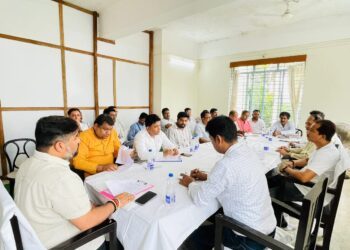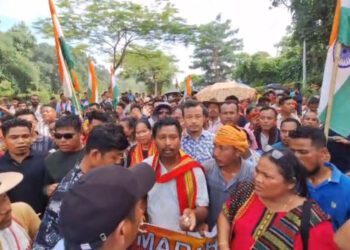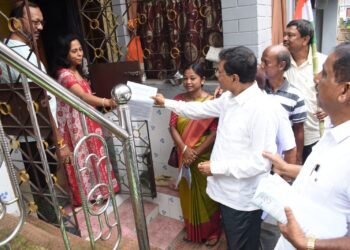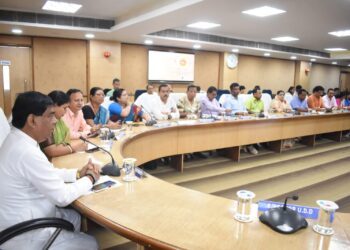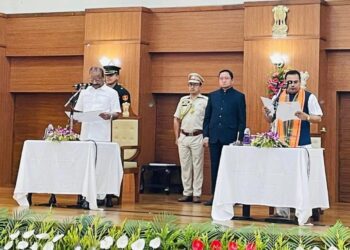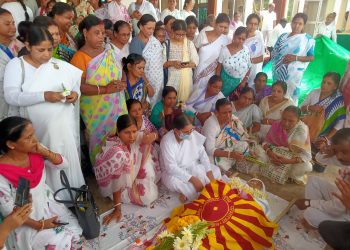Agartala: July 05: In a significant move to raise awareness and educate the media on the provisions of the HIV/AIDS Act 2017, the Tripura AIDS Control Society, in collaboration with the Tripura Journalists Union and Web Media Forum, organised a one-day sensitization programme. The event took place today at Sukanta Academy, Agartala, and saw active participation from various media representatives.
The programme aimed to foster a deeper understanding of the HIV/AIDS Act 2017 among media personnel, ensuring accurate and sensitive reporting on HIV/AIDS-related issues. The Act, which provides robust legal protection for people living with HIV/AIDS, emphasises the importance of non-discrimination and confidentiality, making it crucial for the media to be well-informed.
The event featured an esteemed panel of speakers who provided valuable insights into the Act and the current status of HIV/AIDS in the state. Director of Health Dr. Sanjeev Devavarma highlighted the importance of media in shaping public perceptions and the need for responsible reporting. He stressed the role of the media in breaking stigmas associated with HIV/AIDS and promoting a supportive environment for those affected.
The Joint Director of Family Welfare and Immunisation Rights, Dr. Soumitra Mallick, discussed the legal aspects of the HIV/AIDS Act 2017, focusing on the rights of individuals living with HIV/AIDS. He elaborated on the significance of the Act in safeguarding these rights and the role of the media in disseminating this information to the public.
Bimbisar Bhattacharya, Director of the Information and Cultural Affairs (ICA) Department, underscored the importance of cultural sensitivity in reporting and the need for accurate information dissemination to combat myths and misconceptions about HIV/AIDS.
Samarpita Dutta, Project Director of the Tripura AIDS Control Society, provided an overview of the current HIV/AIDS scenario in Tripura. She shared statistics and trends, highlighting the efforts of society in combating the spread of the virus and supporting those affected.
The interactive session saw active participation from the media representatives, who engaged in discussions and asked pertinent questions. The programme concluded with a pledge from all participants to work towards creating a more informed and supportive society for people living with HIV/AIDS.
Overall, the sensitization programme was a step forward in strengthening the partnership between the media and health sectors, aiming for a future where HIV/AIDS is no longer a taboo topic but one that is discussed openly and with empathy.



